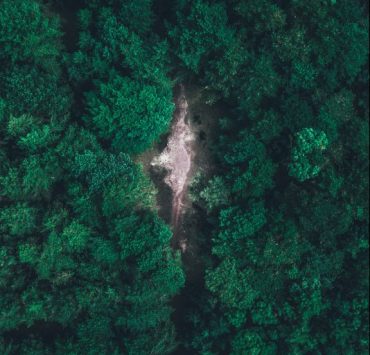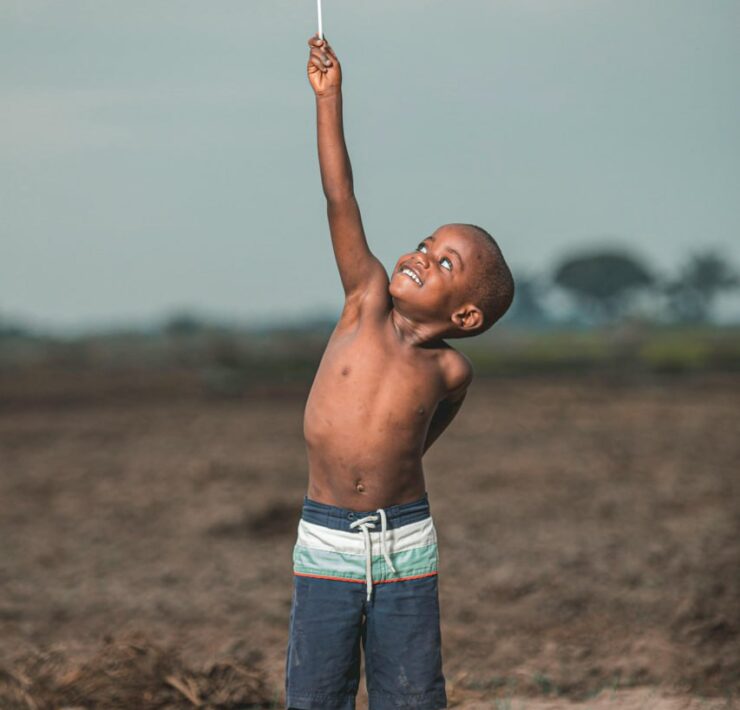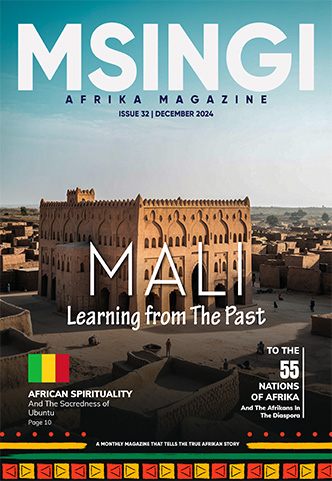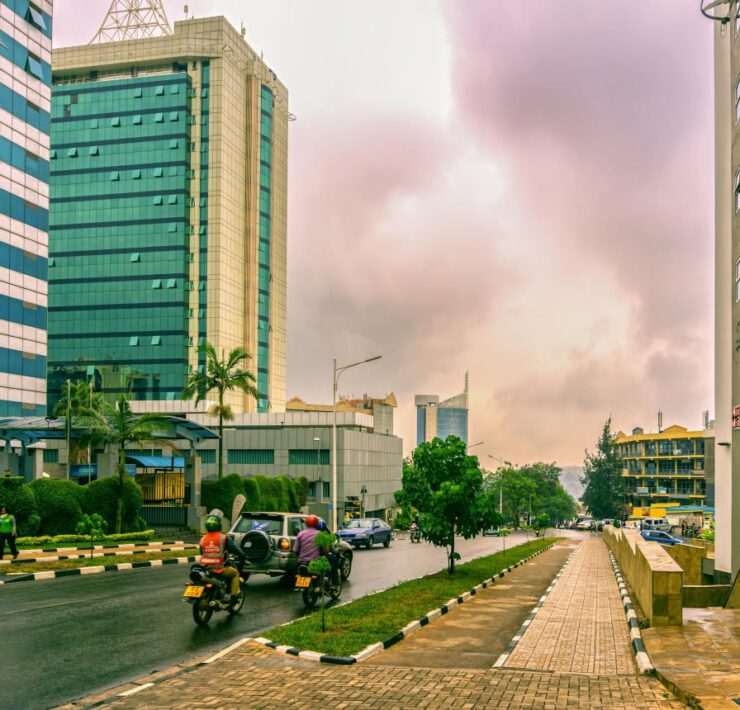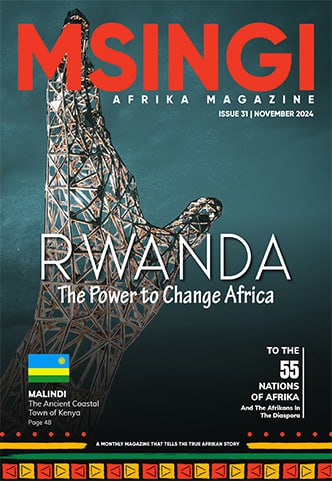
Samuel Phillips is a writer, graphic designer, photographer, songwriter, singer…
Read Next
CHANGING THE FALSE NARRATIVE OF LEFTOVERS
When a person or a people constantly live, think, act, relate and even create base on a set of thinking patterns, those will over time become their cultural reality, irrespective of where they are coming from and what their original antecedent was. Culture here being “the customary beliefs, social forms, the characteristic features of everyday existence and material traits shared by a set of people in a place or time.”
Somehow Afrika and Afrikans all over have found themselves walking away from the very forefront of their true and original self found in leadership, creativity, their royalty, true wealth, brotherhood, sanity of morality etc and are now following behind others from where they mostly beg to be recognized as humans, not to even talk of as being equals to others. We now pride ourselves in being consumers of leftover materials from other countries.
We use their leftover clothes, leftover cars, leftover electronics, old technology, and even their leftover Covid-19 and leftover vaccines. How did we even get here? Where the best of our land in wealth is sent out of the continent, while we are left with the unwanted, even while the very people to whom we send our best to still call us poor and fault us for being poor.
 PIN IT
PIN ITThe bigger question, however, is this: who really is to blame for this incomprehensible magnitude of failure of the Afrikan narrative? My answer is none other than ourselves. Why do I say that? All our problems begin with us, even before they are created by others and imposed on us. They begin with us when we think that what is Afrikan is inferior and what is foreign is the ultimate. We have leaders who are too myopic to see that the various policies and trade agreements they sign or enter into mostly are not favorable to their own people, except maybe their own allies and partners in foolishness.
The past keeps haunting us
For a person, a people or even a community to progress and have true development that is not the lies and materialism that most have embraced and which is destroying our world, they must have a true connection between what was, what is and what is possible in the future. They must have that which their life or lives are anchored on and for which they live and build daily. The various past decisions and mistakes of our leaders and even of ourselves as citizens are always before our faces and they keep undermining our progress because we don’t own up to them and do all to stop the recurrences of the same.
Personally, I feel that for there to be real development based on true daily living out, there must be an accurate match between the past, the present and the future. Take for example the issue of unity among Afrikans both at home in the continent and in the diaspora. There is a constant call for Afrikans to unite and be one people again; which is a most beautiful thing that could happen with this continent. But the question is this, is it really possible to have a united Afrika? Well, I think it’s possible BUT only if we do what is required to make it so. Otherwise it will be a pipe dream that will never come to pass. What do I mean?
See it this way.
For there to be unity among Afrikans, there must a central point of reference that we all are coming from historically and also there must be a central point of focus that we all are walking towards in the form of a vision and then an accurate culture in the present that enables the essence of the past to match with the vision of the future.
Why is that important? It’s a waste of time to say we are fighting for an Afrikan unity when we don’t even have a picture of what that unity looks like in hindsight and when we are not readily available to do what it takes to make it happen when we finally figure out that we have been paying lip-service to many of our issues. We prefer talking about them like bunch of buzzing bees but when it’s time for each one to lay down their pride, ego, self-servicing, greed for power and the many other things that undermine unity, we suddenly remember that we are sovereign nations and independent Afrikan people. We are together as the African Union when it’s time to sit in our fine seats in Addis Ababa and we waste time talking about peace and unity, but at our respective national borders, we behave like ruthless warlords towards our Afrikan brothers and sisters. We certainly do not have a point of reference for our unity and a central point of focus for our growth and thus a present culture that births true liberty and true development is lacking.
But do we really not have a point of reference for our unity? Well I think we do but not as a central point of reference that was binding on all Afrikans at independence but as great suggestions from some of the founding fathers of the Afrikan states. I am sure you know the philosophies of people like Kwame Nkrumah, Julius Nyerere, Thomas Sankara etc. So I won’t say more about that.
But first, what is the central ideal of the Afrikan leaders for their people and also the ideals of the Afrikan people for themselves. A candid answer to this question and the other question may begin the process of healing for Afrika.
For there to be unity among Afrikans, there must a central point of reference that we all are coming from historically and also there must be a central point of focus that we all are walking towards in the form of a vision and then an accurate culture in the present that enables the essence of the past to match with the vision of the future.
Samuel Phillips
Saudi Arabia for example
I am currently reading the book by John Perkins titled: The New Confessions of An Economic Hit Man.
The book has a lot of eye-opening details about how the American global empire agenda works and how that agenda works in Afrikan countries through loans, debts, and threats, which makes me wonder whether our Afrikan governments are aware of such an agenda and how the very loans they so much crave are the very tool that the west is using to keep Afrika and Afrikans down.
In chapter 15 of the book, a conversation occurred between the author John Perkins and a Saudi diplomat.
“In 1974, a diplomat from Saudi Arabia showed me photos of Riyadh, the capital of his country. Included in these photos was a herd of goats rummaging among piles of refuse outside a government building. When I asked the diplomat about them, his response shocked me. He told me that they were the city’s main garbage disposal system. “No self-respecting Saudi would ever collect trash,” he said. “We leave it to the beasts.”
These sentiments were also shared with Perkins by his driver.
Bear with me, I am going somewhere with this story.
Later in the same chapter, Perkins gave some details about the way of life of the Saudis. He said concerning a thought he was having within himself in this way “As I worked through these ideas, I thought of the goats, and the words of my driver often echoed in my ears: “No self-respecting Saudi would ever collect trash.” I had heard that refrain repeatedly, in many different contexts. It was obvious that the Saudis had no intention of putting their own people to work at menial tasks, whether as laborers in industrial facilities or in the actual construction of any of the projects. In the first place, there were too few of them. In addition, the royal House of Saud had indicated a commitment to providing its citizens with a level of education and a lifestyle that were inconsistent with those of manual laborers. The Saudis might manage others, but they had no desire or motivation to become factory and construction workers. Therefore, it would be necessary to import a labor force from other countries — countries where labor was cheap and where people needed work. If possible, the labor should come from other Middle Eastern or Islamic countries, such as Egypt, Palestine, Pakistan, or Yemen.”
What a way to think. What a way for the leaders to raise a people. What a way to create a progressive thinking culture that enables a people think beyond servitude and subservient attitudes. Mind you, the above story happened in the early 70’s and we all know that the way of life of the Saudi has not changed till date for anything but the better.
What about Afrika?
I have watched the governments in Afrika, their policies, the decisions they make in the name of their people and I have come to conclude that the people are really not their priorities but the foreign masters who pay their bills are. Every day you hear about how rich and wealthy Afrika is in words and on paper, but right there, as you are listening to that story of riches and wealth, you see how poor and impoverished many areas in Afrika are. It is obvious that we have become a continent whose leaders either plot, help or simply fold their hands and watch as the west plots and kill those who meant well for Afrikan people. Case in time, Thomas Sankara a fine Afrikan leader whose head was in the right place was killed in a coup orchestrated by his own best friend, a man who later became president. And now after thirty-four years, his ‘friend’ is being convicted of the murder of Sankara. Talk about lateness.
Some time ago, my wife and I were in a particular clothing shop in Nairobi CBD. I noticed the clothes were new and unused but they were not looking great. In my innocent surprise I asked her what she thinks is the reason. She said that there are clothing factories in Kenya which make clothes for export but that those particular sets of clothes I was asking about are the ones rejected. They could not be exported so they are sold to Kenyans. I was almost bursting with anger. So the one thing that fits the good people of Kenya from their government are the rejected clothes? Mind you, I am only using Kenya as reference, so it’s not just a Kenyan thing and definitely Kenya is not a target.
But seriously
When will Afrikans realized that we all have stayed on this side of the desert for too long and then start to empower one another to grow? Especially in this season of the African Free Trade Area.
The youths are getting it but…
We have entered a season in Afrika in which the young people are realizing how wasteful and unproductive their leaders have been and are beginning to create new realities for themselves as youths. But are the older people or the Afrikan leaders really paying attention to this change or are they just busy saying the youths are trouble makers?
I asked my wife on the day I was writing this article “When will Afrikan leaders realize that the young ones are awake and then give them the accurate support and resources to make things happen in Afrika?” Her answer was, “maybe they the leaders are actually afraid of the awakening of the young people.”
Her answer definitely rings a bell in my head.
Here is the thing. If her answer is true and I am beginning to think it is, then the question is, are we really ready for a progressive united Afrika? For a progressive united Afrika can only be made possible by the united force of the Afrikan youths in tandem with the wisdom and experience of the older ones.
Hotep!
Subscribe now for updates from Msingi Afrika Magazine!
Receive notifications about new issues, products and offers.
What's Your Reaction?
 PIN IT
PIN ITSamuel Phillips is a writer, graphic designer, photographer, songwriter, singer and a lover of God. As an Afrikan content creator, he is passionate about creating a better image and positive narrative about Afrika and Afrikans. He is a true Afrikan who believes that the true potential of Afrika and Afrikans can manifest through God and accurate collaborations between Afrikans. Afrika is the land of kings, emperors, original wisdom, ancient civilizations, great men and women and not some road-side-aid-begging poor third world continent that the world finds joy in undermining.














